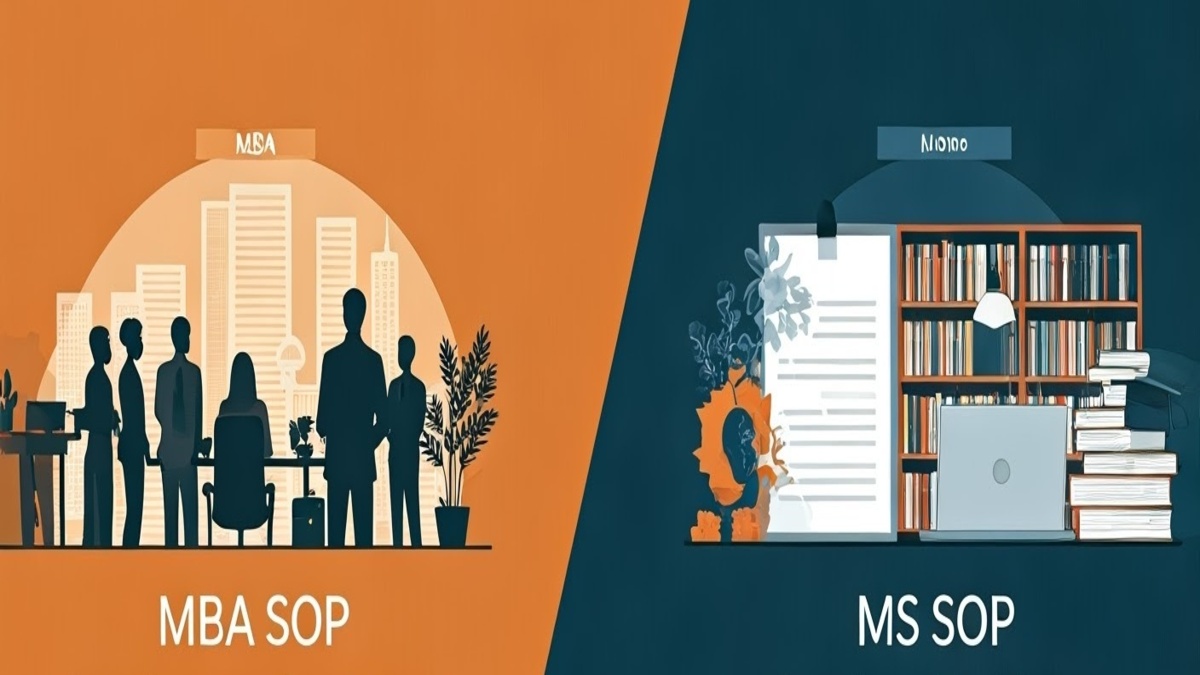Today, IELTS has been recognized all over the world. Consequently, it is of utmost importance to know how to be eligible for IELTS before booking a test date. In 2025, one needs to closely follow the rules concerning the age bar, qualification certificate, and ideal scores. Knowing these rules will help you have an effortless and smooth-time registration but also prepare you effectively to take up the test.
In checking the eligibility criteria for the IELTS tests in 2025, it is evident that people of all ages are eligible to take the test. It could either be a student planning foreign studies or a professional aiming at opportunities around the globe. After all, you would have to meet the requirements of the training. In general, depending on the institution or organization to which you are applying, there would be requirements for each section of the IELTS exam, namely Listening, Reading, Writing, and Speaking.
For instance, a person who seeks higher education in an English speaking country needs an overall band score to be high enough, and a working professional who wants to work or immigrate to such countries.
Understanding 2025 IELTS eligibility criteria together with its fulfillment will be beneficial for the candidates to face the exam without any hindrance and being closer to success. Preparing well before the test requires familiarity with the pattern of the test and practice on a regular basis followed by the guidance of credible sources for an effective improvement in the English language.
Key Highlights
- The International English Language Testing System (IELTS) exam doesn't have a maximum age limit.
- Aspirants need to be above 16 years for taking IELTS.
- There is no minimum qualification required to take the test.
- The aspirant must have passport for completing the process of registration.
- The score from IELTS can be required as per the requirements of university or organizations
Understand the IELTS Eligibility Criteria 2025
The entry requirement to take an IELTS test is relatively easy with a limited number of requirements: one's age and nationality. Both of them must be met.
The age requirement is another very crucial eligibility criterion for attending the IELTS test. Another very important requirement is nationality. Every examinee needs to carry a valid passport while registering and taking the test. A passport is important proof of identity and nationality while registering and in actual testing.
In addition to age and nationality, the other important aspect of fulfilling the eligibility criteria of the candidate is that it makes the IELTS registration process simple and easy and also strictly adheres to the rules of the exam as provided for. To steer clear of disqualification on the exam day, the candidates have to first fulfill both the age and nationality requirements before becoming registered for IELTS exam.
Age Limit for Registrants in India
For those who want to sit for the IELTS exam in India or even abroad, this is the age criterion that one is expected to have knowledge of. There is a general rule for the minimum age limit, which is 16 years to sit for the IELTS exam, considering the maturity and right understanding of the language.
Similar to most standardized tests, the IELTS does not have an upper age limit. This means any candidate above the age of 16 is allowed to sit for the test. This mainly promotes equal opportunities at the sitting level.
Any age group, IELTS is that test which tests the degree of English proficiency by fixed parameters. There is no age limit for this test; accordingly, people from all ages can take up IELTS to fulfill purposes, such as employment opportunities, requirements for immigration or legal aspects, or further education.
Essential Educational Qualifications
The IELTS exam checks how well people can use the English language. It does not require anyone to have specific educational qualifications. This allows more people to take the exam, no matter their school background.
You can take the IELTS exam as long as you meet the age and ID requirements. This includes high school students, graduates, or people with jobs. This means anyone can show their English language skills and work towards their goals. Whether it is for higher education or job opportunities around the world, they are not held back by past school performance.
The IELTS exam focuses on language skills instead of asking for certain degrees. This ensures a fair and clear look at how well a person can communicate in English. The International English Language Testing System (IELTS) is a widely recognized exam that assesses English language proficiency. Understanding IELTS eligibility criteria is crucial before scheduling your IELTS test date. In 2025, prospective test-takers need to adhere to specific rules regarding age limits, educational qualifications, and target scores. Familiarizing yourself with these guidelines not only ensures a seamless registration process but also enables you to adequately prepare for the exam.
When considering IELTS eligibility requirements for 2025, it is essential to note that individuals of all ages can take the test. Whether you are a student planning to study abroad or a professional seeking international opportunities, meeting the educational prerequisites is vital. Depending on the academic institution or organization you are applying to, there may be specific score requirements for each section of the IELTS exam – Listening, Reading, Writing, and Speaking.
For prospective test-takers aiming for higher education opportunities in an English-speaking country, achieving a competitive overall band score is crucial. Additionally, professionals seeking employment or immigration in such countries must also meet certain language proficiency standards.
By understanding and fulfilling the IELTS eligibility criteria for 2025, candidates can approach the exam confidently and increase their chances of success. It is advisable to start preparing early, familiarize yourself with the test format, practice regularly, and seek guidance from reputable resources to enhance your English language skills effectively.
Detailed IELTS Score Requirements for 2025
IELTS score requirements can differ from place to place. Each college or organization you apply to decides its own minimum IELTS scores. Usually, universities and immigration agencies set these scores based on the program or visa you choose.
It is important to check the IELTS score requirements for the places you want to apply to. The details are available on the respective college sites. Passing IELTS with a good score will enhance the opportunity for getting admission to the college and a visa.
Indian Universities' Minimum Scoring Requirements
Most of the top Indian universities require IELTS as part of the admission requirement, especially for postgraduate programs. The minimum IELTS score you will need varies with university and with program.
For example, some colleges ask that you have at least a 6.5 general score. Other colleges may demand even higher scores depending on the course. Some may demand minimum scores in the following areas: Listening, Reading, Writing and Speaking.
Every university should be thoroughly scrutinized through their official website or prospectus before you apply there. They specify IELTS requirement for particular and sometimes specific bands too.
What IELTS Score Do Top Universities Require?
In most countries of the world, highly ranked institutions require higher IELTS scores especially to highly competitive programs. The variance indicates a level to which universities demand great English language communications during highly demanding academic environments.
The following table shows average band scores of a few of the world's most renowned universities. Remember, though, these are averages and the specific program can vary:
| University | Average Band Score |
| University of Oxford | 7.5 |
| University of Cambridge | 7.5 |
| Stanford University | 7.0 |
| Massachusetts Institute of Technology (MIT) | 7.0 |
| Harvard University | 7.5 |
It is always advisable to check the university's official website for the latest and highest IELTS score required for that particular program.
Main Changes to the IELTS Eligibility in 2025
To date, no major updates have been presented on the eligibility criteria of IELTS for 2025. The British Council and IDP run the IELTS and usually want to keep their requirements the same. This helps make sure that the assessment process is fair and standardized.
Yet, it is good to stay aware of any updates. You can do this by checking official IELTS announcements and the websites of the British Council and IDP. You can also subscribe to their newsletter and social media pages for the latest news.
Adjustments in Age Criteria
This will not be altered for 2025. The British Council and IDP administer the International English Language Testing System. As per them, candidates need to be at least 16 years old.
It applies to ensuring that test-takers are mature and possess the proper language skills. There is no age limit, so anyone above 16 can prove his English language skills.
The age rules in no way vary in any of the countries that deliver IELTS services, thus including New Zealand. So, by adopting an age-eligible criterion for applicants, they would be more prepared to take the test.
Updates in Qualification Necessities
Moving into 2025, the IELTS eligibility criteria for educational qualifications are likely to stay the same. The IELTS exam mainly checks a person's English language skills, not their academic records. So, there are no specific educational requirements to take the test.
This open approach lets people from various educational backgrounds show their English language skills. They can then go after their goals, like higher education, professional registration, or migration. The focus is on language ability instead of formal education, meaning that everyone is judged on how well they can communicate in English, no matter their past studies.
This steady eligibility criteria for IELTS shows its goal of providing a fair and open test for anyone wanting to prove their English language skills. Whether you take the General Training or Academic test, the main focus is still on your language skills.
Conclusion
In a word, having the IELTS eligibility criteria in 2025 is something that everyone who takes the test must know about. Age limit, education needed, and score requirements are the conditions that determine whether or not you should take up the exam. First and foremost, of course are the major changes such as the new application of age limits and alteration to education needs. To make sure you meet the requirements of Indian universities and top schools, you need to prepare well and pay attention to details. Keep updated on the latest rules to boost your chances of success in the IELTS exam. For more details and help with IELTS eligibility, check the frequently asked questions section.
FAQs
What is the maximum age limit for IELTS?
Although the IELTS exam is available for everybody, irrespective of age, a candidate needs to be at least 16 years old to take up the examination. There is no maximum age limit, and a candidate can appear for the test as long as they do not exceed the age of 16 years. In this manner, IELTS as an assessment tool can offer the opportunity to people of all ages to be able to prove themselves with proficiency in English. The fact that there is no age restriction means that any candidate of any age can take the IELTS exam, underscoring the absolute universality in access and suitability.
Who is eligible for the IELTS exam?
Can I use IELTS after 2 years?
Can you take IELTS if you are below 18 years of age?
What is the minimum age requirement for IELTS in India?
Can 12th-grade students apply for IELTS?
What educational qualifications are needed for IELTS 2025?
How do I determine if my score meets the requirements for my target university?
Can someone below the age limit apply for a special permission to take the IELTS exam?
How does the age limit impact test takers in terms of preparation and performance on the IELTS exam?
How many attempts are possible in the IELTS exam for students looking to study abroad?


